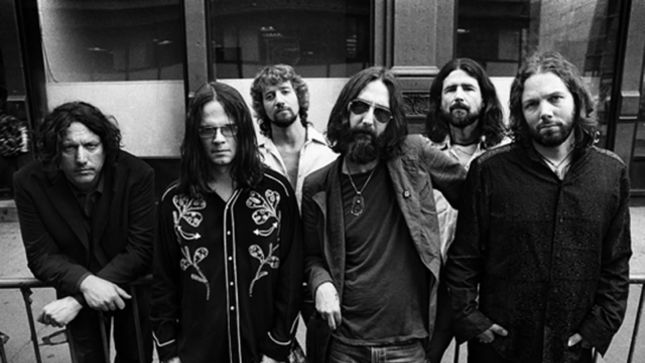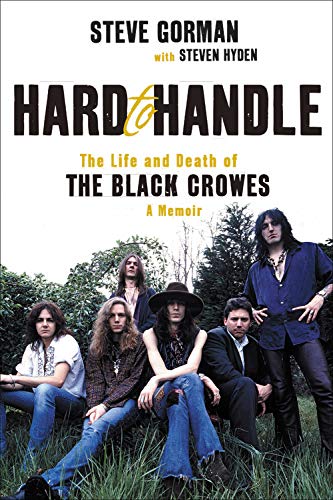THE BLACK CROWES Drummer STEVE GORMAN Reveals Wild Tales In Hard To Handle Memoir, Including "Unforgivable" Behavior
October 3, 2019, 5 years ago

Last month, Da Capo Press published Hard To Handle: The Life And Death Of The Black Crowes - A Memoir, written by the drummer and co-founder of The Black Crowes, Steve Gorman, along with contributor Steven Hyden.
Now, Rolling Stone writer Joseph Hudak has revealed seven of the wildest tales in Gorman’s account of one of rock’s most dysfunctional bands; two of which can be read below. To learn about the others, visit this location.
Not interested in partying with his bandmates after a triumphant gig in New Orleans, Rich Robinson broke Gorman’s cardinal rule of touring: He drove home in the bus without the rest of the band.
According to the drummer, he, Chris, and the rest of The Crowes wanted to see Peter Holsapple play a solo set across town after their own gig ended. Rich wanted to head immediately back to Atlanta. Reaching a compromise, they planned to meet Rich at the bus at 2 a.m. to head home. But when they arrived, both Rich and the band bus were gone. “Even Chris, on his worst fucking day, would never take the bus,” Gorman writes. “That’s never happened in the history of bands. It’s unforgivable.” Rich never apologized, says Gorman. Instead, the guitarist asked the band to get him his own bus.
The Black Crowes were excited to be the house band at Howard Stern’s 60th birthday party in New York — until Chris Robinson asked, “How much?”
The shock jock was an early supporter of The Black Crowes, so Stern’s team thought they’d be the perfect choice to play his all-star birthday tribute at New York’s Hammerstein Ballroom in 2014. The plan was to do it for free to repay Stern for his fandom, but Chris wasn’t having it. “Fuck Howard Stern. I don’t owe that motherfucker anything,” he said, according to Gorman, who claims the singer wanted $150,000 personally to do the gig. He didn’t get it, and he forbade his bandmates from playing it without him. “The real Chris Robinson is the angriest person I’ve ever known,” writes Gorman.

For over two decades, The Black Crowes topped the charts and reigned supreme over the radio waves, even as hair bands, grunge, and hip-hop threatened to dethrone them. With hits like "Hard To Handle", "She Talks To Angels", and "Remedy", their massive success launched them to stardom in the early '90s, earning them a place among rock royalty. They were on the cover of Rolling Stone, MTV played their videos 24/7, and Generation X re-discovered the power of classic rock and blues by digging into multi-platinum classics like Shake Your Money Maker and The Southern Harmony And Musical Companion.
But stardom can be fleeting. For The Black Crowes, success slowly dwindled as the band members got caught up in the rock star world and lost sight of their musical ambition. Despite the drinking, drugs, and incessant fighting between Chris and Rich Robinson - the angriest brothers in rock and roll, with all due respect to Oasis and The Kinks - the band continued to tour until 2013. On any given night, they could be the best band you ever saw. (Or the most combative.) Then, one last rift caused by Chris Robinson proved insurmountable for the band to survive. After that, The Black Crowes would fly no more.
Founding member Steve Gorman was there for all of it - the coke and weed-fueled tours; the tumultuous recording sessions; the backstage hangs with legends like Robert Plant, Jimmy Page, and The Rolling Stones. As the band's drummer and voice of reason, he tried to keep The Black Crowes together musically - and in one piece emotionally. In his first-person history of The Black Crowes, Hard To Handle - the first ever account of this great American rock band's beginning, middle, and end - Gorman makes it clear just how impossible that job was. Fortunately, Gorman tells the tale with great insight, candor, and humor. They don't make bands like The Black Crowes anymore: crazy, brilliant, self-destructive, inspiring, and, ultimately, not built to last. But, man, what a ride it was while it lasted.











